At Birth:
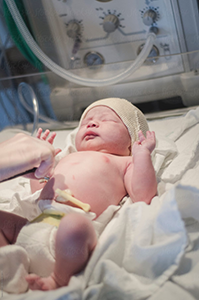
Baby’s first test is the APGAR score. This quick assessment is done at 1 minute and 5 minutes after the birth to let us know if the baby is transitioning well to air breathing or needs additional assistance. This test can be done while the baby is in your arms, on your chest. If we need a closer look we have a flat, heated, well-lit surface in the birthing room where we can assess the baby for additional care.
Baby will have a newborn exam at approximately 1 hour of age. We will check that the baby’s body is formed normally and that all the neurological reflexes are present. We will weigh and measure the baby, listen to the heart and lungs and check the baby’s vital signs. This is when we will administer the first medications if you choose to have them.
Baby will have a newborn exam at approximately 1 hour of age. We will check that the baby’s body is formed normally and that all the neurological reflexes are present. We will weigh and measure the baby, listen to the heart and lungs and check the baby’s vital signs. This is when we will administer the first medications if you choose to have them.
In the early days
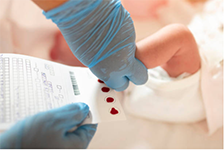
Baby will be offered 3 screening tests at 24-72 hours, we strongly recommend them. These tests will be done by the nursing staff at St Joe’s if baby is born in hospital and stays for 24hours. If the baby is born at home or has early discharge the midwife will do the tests at home if you choose to have them.
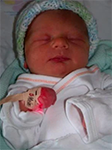
CCHD screening. This is a test that screens for heart defects. We apply a small probe to the baby’s skin to measure their oxygen levels. We check the levels in the baby’s hand and in one foot and the measurements should be similar. If the levels are too different, then we organize for a physician to examine the baby and plan for additional testing as appropriate. You can watch a video of a midwife performing this screening test at home here: https://www.youtube.com/watch?v=8SSq07R5ZWA&ab_channel=NewbornScreeningOntario%28NSO%29
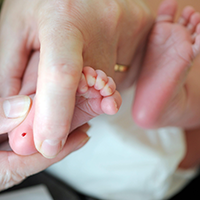
Bilirubin level to screen for jaundice. Jaundice is a normal part of being a baby, 80% of babies are visibly jaundiced (yellow) but only about 10% have bilirubin levels approaching the danger zone that require treatment. Jaundice can cause brain damage but this is preventable with the correct follow up and testing. This test requires a blood sample which is collected from the baby’s heel – called a heel prick. The sample is analyzed by St Joe’s hospital lab. You can learn more about jaundice here: https://caringforkids.cps.ca/handouts/pregnancy-and-babies/jaundice_in_newborns
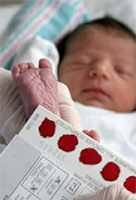
Ontario Newborn Screen. This test also collects blood from a heel prick. It tests for many rare but serious diseases and is analyzed at the Children’s Hospital of Eastern Ontario. This test cannot diagnose any problems, but identifies babies at increased risk who need further testing. If further testing is required, those appointments happen at McMaster Children’s Hospital with genetic specialists. Many of these conditions can cause irreparable harm before there are any signs or symptoms so early diagnosis is key. You can learn more here: https://www.newbornscreening.on.ca/en/about-screening/what-screening
Both the bilirubin test and the Ontario Newborn Screen can be done together from the same heel prick. We recommend skin to skin and breast/chestfeeding to give the baby comfort and pain relief during the test. Keep socks on your baby for a few hours before the test so the feet are nice and warm as this will make the blood easier to collect. Often when the midwife performs the test, baby don’t even cry.
Both the bilirubin test and the Ontario Newborn Screen can be done together from the same heel prick. We recommend skin to skin and breast/chestfeeding to give the baby comfort and pain relief during the test. Keep socks on your baby for a few hours before the test so the feet are nice and warm as this will make the blood easier to collect. Often when the midwife performs the test, baby don’t even cry.
Infant Hearing Program:
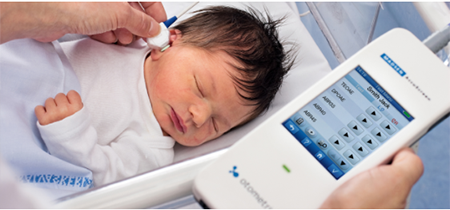
In the first 6 weeks, ideally by 2 weeks of age, the baby will be offered a hearing test to screen for hearing loss. This test is easy and comfortable for your baby. A small probe goes in the baby’s ear and a hand-held machine analyzes the findings. This test can be done in the hospital or in the community, often at an Ontario Early Years Center. Your midwife does not conduct this test but will make sure you know how to arrange it if your baby is not tested in hospital. You can read more about the infant hearing program here: https://www.ontario.ca/page/infant-hearing-program
|
Office hours
Share Us on:
|
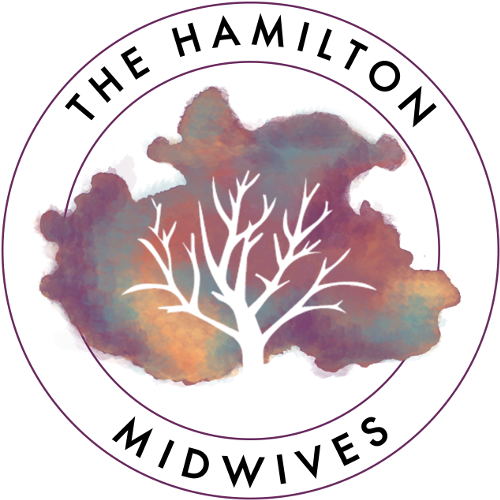
The Hamilton Midwives
25 Charlton Avenue East, Unit 600 |
© 2024 The Hamilton Midwives - hamiltonmidwives.ca All Rights Reserved.
